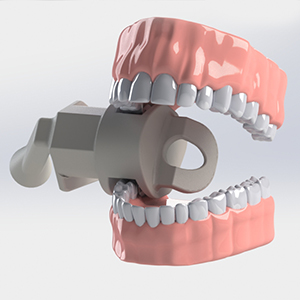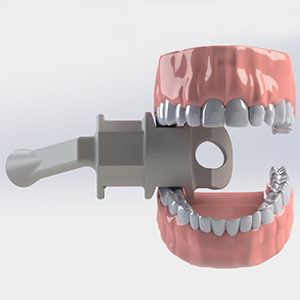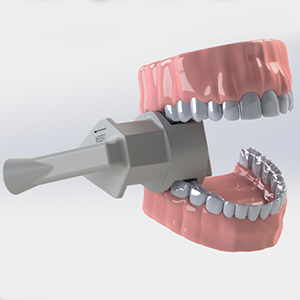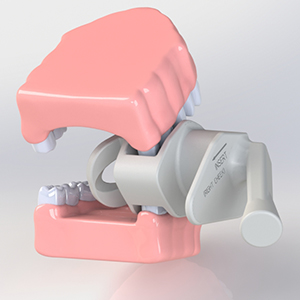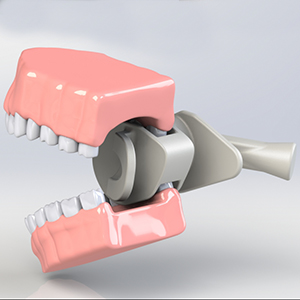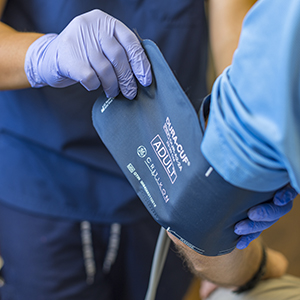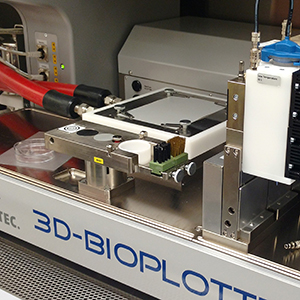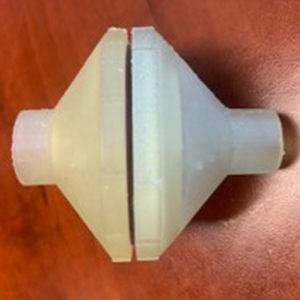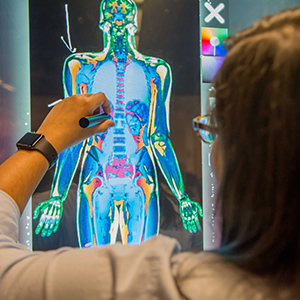Description
New device allows hands-free, rapid intubation with improved visability, continuous suction
A team of emergency healthcare workers at UNMC created a small, hands-free airway management device that should make intubation procedures faster and safer.
Currently, clinical staff often maintain a patient’s airway through a non-invasive technique called the jaw-thrust maneuver. In this technique, medical staff forcefully push forward the patient’s jaw to establish a clear airway. Though this technique is effective in most instances, it does require constant, hands-on attention to maintain proper position of the jaw.
UNMC’s solution to this problem is a small device that—when properly placed between a patient’s teeth—facilitates the opening of the mouth while mechanically thrusting the jaw forward. The device is structured to use the patient’s teeth as landmarks for proper insertion. The same structure also serves as a mechanical aid that helps clinicians perform the jaw-thrust maneuver.
Use of the device frees medical personnel to perform other critical tasks, which can include wound care or preparations for more advanced airway management.
Safeguards incorporated into the device displace the patient’s cheek and lips, which protects the soft tissue from injury while allowing full visibility to the back of the patient’s throat.
Increased visibility allows for advanced airway techniques such as endotracheal intubation without needing to remove the device. An integral retention holder also allows for hands-free placement of a suction catheter to help keep the airway clear of fluids during the intubation process.
This device is portable, requires minimal training, and has manufacturing costs equivalent to current devices on the market. A working prototype is available for use.
To discuss sponsored research and licensing opportunities contact Tyler Scherr, PhD, at tyler.scherr@unmc.edu or 402-889-5498.

